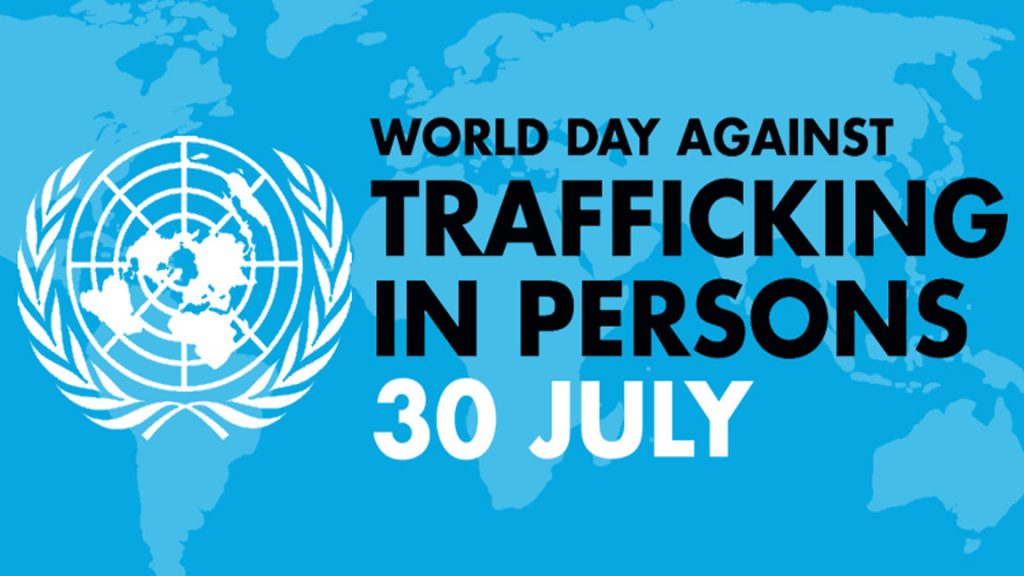On July 30, 2025, Pakistan joined the global community in observing the World Day Against Trafficking in Persons, a solemn occasion dedicated to raising awareness of the human trafficking crisis and reaffirming national and international resolve to combat exploitation in all its forms. This year’s theme, “Human Trafficking: A Coordinated Crime – End Exploitation,” underscores the organized and deeply interconnected nature of modern trafficking networks.
The day serves not only as a platform for reflection but also as a catalyst for strengthening Pakistan’s legal, social, and institutional framework to protect the vulnerable and prosecute perpetrators.
Pakistan’s Trafficking Crisis: A Hard Reality
Human trafficking remains a significant challenge in Pakistan. Thousands of individuals many of them young men and women are deceived by promises of overseas employment or education. Instead, they fall prey to trafficking networks that exploit them for forced labor, sexual slavery, organ trade, or illegal begging operations.
Recent tragic incidents involving illegal sea crossings to Europe have further highlighted the perils faced by victims of human smuggling. These heartbreaking stories have put a spotlight on the urgent need for preventive strategies, robust enforcement, and grassroots awareness to protect Pakistan’s youth and marginalized communities.
Government Commitment: Stronger Laws, Better Protection
This year, Pakistan’s leadership reiterated its unshakable resolve to eradicate human trafficking. Law enforcement agencies across the country have been mobilized to intensify operations against smuggling networks, with a renewed focus on coordination between federal and provincial authorities.
Recent legislative amendments have bolstered Pakistan’s anti-trafficking framework by introducing stricter penalties for traffickers and enhancing protection mechanisms for victims. These laws reflect the evolving nature of trafficking no longer limited to physical borders, but often conducted through digital platforms and false documentation.
From Prosecution to Protection: A Victim-Centered Approach
A significant shift is underway in Pakistan’s anti-trafficking strategy from merely penalizing traffickers to also prioritizing the rehabilitation and reintegration of victims. New frameworks emphasize survivor-centered care, including:
- Legal aid and witness protection
- Safe shelters and rehabilitation centers
- Trauma-informed healthcare and psychological counseling
- Job training and educational opportunities
By treating survivors with dignity and compassion, authorities aim to break the cycle of exploitation and empower victims to reclaim their lives.
Role of Civil Society and Communities
Pakistan’s observance of the day also highlights the critical role of civil society, NGOs, and local communities. Across the country, awareness campaigns, educational workshops, and media outreach efforts are being deployed to help citizens:
- Recognize the signs of human trafficking
- Understand how to report suspicious activity
- Educate youth and families about the dangers of illegal migration and fake recruiters
- Promote safe, legal pathways to employment and migration
Mosques, schools, and community centers have become hubs for spreading knowledge and encouraging community vigilance.
International Cooperation: A Shared Battle Against Trafficking
Human trafficking is not a local issue it is a transnational crime requiring global cooperation. Pakistan continues to engage with international partners to share intelligence, train law enforcement officers, and strengthen border controls. Through joint task forces and diplomatic engagement, the country is expanding its capacity to intercept traffickers and dismantle networks that operate across borders.
Final Word: The Fight Against Exploitation Must Be Relentless
As Pakistan marks World Day Against Human Trafficking, the message is clear: trafficking is not just a crime it is a betrayal of humanity. The path forward requires more than statements; it demands unified action, stronger institutions, and a society that refuses to look the other way.
Whether through new laws, empowered survivors, vigilant communities, or international alliances, Pakistan is steadily building the foundation to ensure that every person regardless of gender, age, or background can live free from exploitation.
Let us remember that ending human trafficking is not just the job of governments or NGOs it is a collective moral duty. And it starts with awareness, compassion, and unwavering resolve.



Comments (0)
No comments yet. Be the first to comment!
Leave a Comment